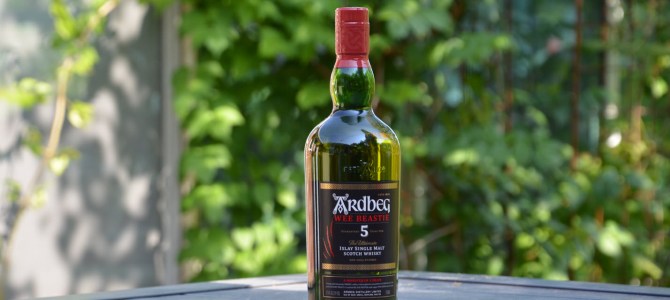There has been a growing trend for the past decade and more of fading age statements on scotches as distilleries are feeling the crunch in supply from demand in an exploding global market. Brands have replaced age statements with whiskies lacking them, to varying success, so it is a surprise to see a major distillery like Ardbeg release a new core offering to their line that carries an age statement. Even more unusual is that it is a young age. The unofficial benchmark for most single malts to list their age is 10 years, as evidences by the many 10 or 12-year scotches on the market. Going younger, especially to 5 years – only two years more than the minimum regulated age required to even be called a whisky in the EU – is even more against the grain. While the Wee Beastie is so named to market the rawness of youth, it already holds a place of interest simply for its bold choices.
Ardbeg 5 Year Wee Beastie



